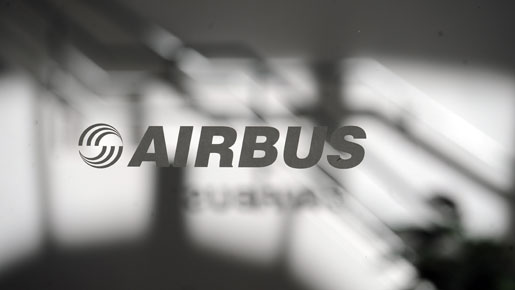
A World Trade Organisation panel a called on the European Union to end illegal subsidies to Airbus, ratcheting up the stakes in the multi-trillion-dollar large aircraft market.
The call came in a confidential 1,000-page ruling by the WTO panel in one of two cases in the trade dispute involving arch-rivals Boeing and EADS subsidiary Airbus.
The EU said the ruling was only part of the puzzle and it was premature for one side to claim victory.
“A fuller picture will only emerge with the release of the interim report in the EU case against subsidies to Boeing which we expect to be issued in the coming months,” EU trade spokesman John Clancy said in a statement.
The ruling, covering EU support for Airbus challenged by the US, said some of the financial aid at issue amounted to prohibited export subsidies and should be stopped within 90 days, several sources familiar with the ruling told reporters.
This included part of the European funding for Airbus’s flagship 525-seat A380, the world’s largest airliner.
Other support that caused injury to US planemakers should also cease, the panel ruled, but set no deadline.
Airbus acknowledged the WTO had found some subsidies and said it might appeal against this ruling, but asserted the panel had rejected 70 percent of US claims.
The ruling does not mean the end of the dispute, which dates back decades. The WTO is due to rule by late June in the countersuit brought by the EU against US support for Boeing.
Both sides could drag out the litigation into next year and beyond with appeals and new disputes over compliance.
“As in all other trade conflicts, resolution will finally only be found in trans-Atlantic negotiations,” Airbus said in a statement.
Mixed verdict
Boeing insists the two cases are separate and hopes the ruling will stop the EU from subsiding Airbus’s new A350 plane.
But Airbus said the ruling would not affect funding for the A350 – strictly correct as the panel decided the new airliner was out of its terms of reference, which only covered aid up to 2006. Washington will likely argue a precedent was set, however.
In such complex cases the conclusions rarely go one way, and the panel did find that some support for Airbus, such as loans from the EIB or debt forgiveness by Germany, did not amount to subsidies, the source said.
But it did say that many other forms of support – in some cases at least – did amount to illegal subsidies. These included infrastructure spending, equity ownership, equity infusions, and some research and development spending, sources familar with the case said.
“The panel has now confirmed what we have always said: reimbursable loans are a legal instrument and they have not caused one single job loss to the US aerospace industry,” Airbus spokeswoman Maggie Bergsma said.
“Airbus has brought competition, ensuring healthy choice for our customer airlines,” she said in a statement.
There was no immediate comment from US officials or Boeing.
The report will not be published for several weeks or months as it awaits translation into French and Spanish, but a confidential copy of the document was handed to the US and EU trade missions in Geneva.
While both parties are bound to secrecy until publication, more details are likely to trickle out as the two sides seek to influence the debate over government subsidies for aircraft.
Subsidy rules lie at the heart of the battle for dominance of the market for civilian aircraft which aerospace firms estimate will be worth $3trn over the next 20 years.
The US argues that Airbus got a total of $205bn in unfairly priced loans and other benefits from France, Germany, Spain and Britain over two decades – making the case by far the biggest international trade dispute.
Final resolution of the two cases will define the rules of the civil aviation market, where Airbus and Boeing have together nearly $1trn of aircraft on their order books, for years to come.

